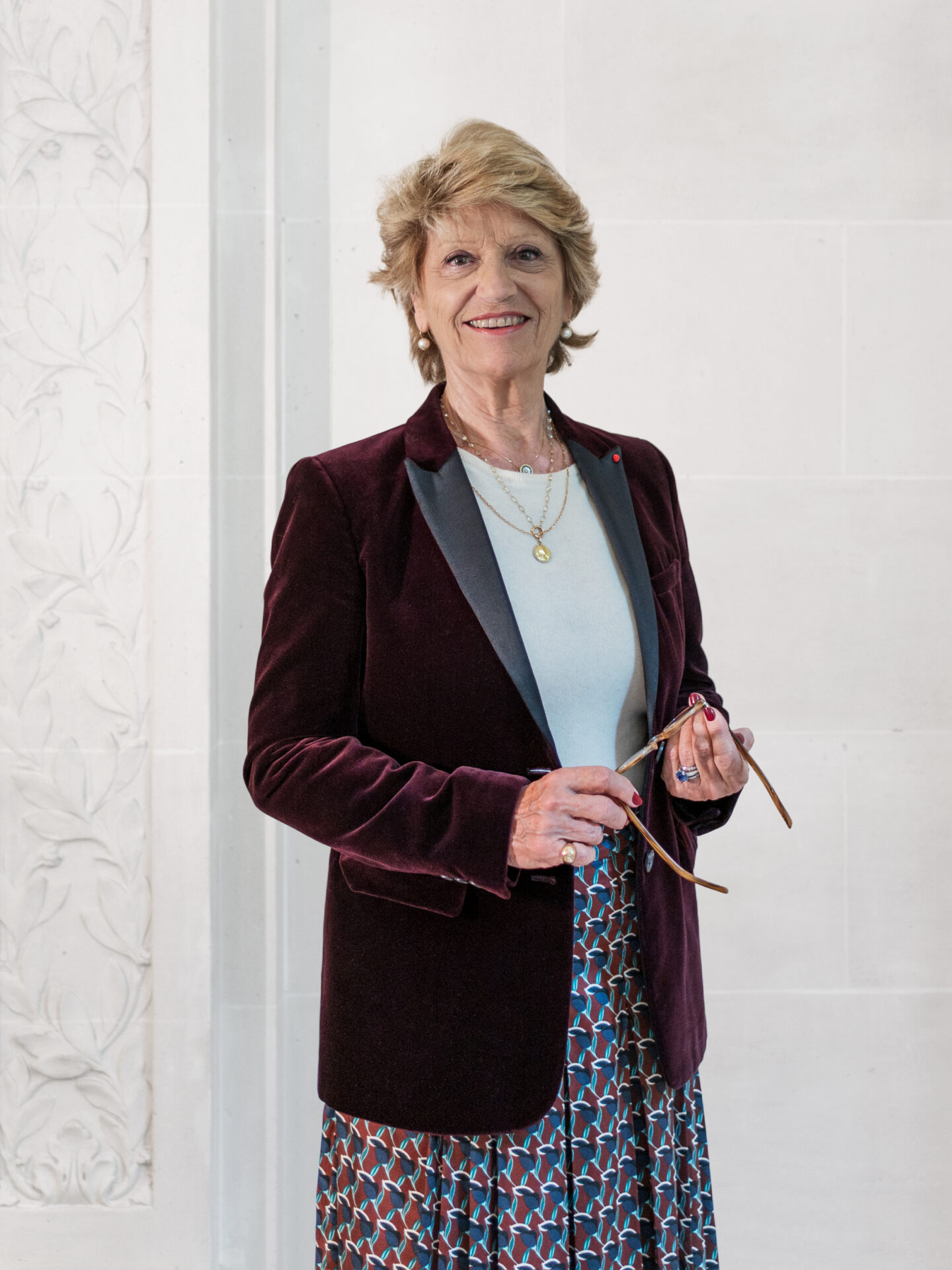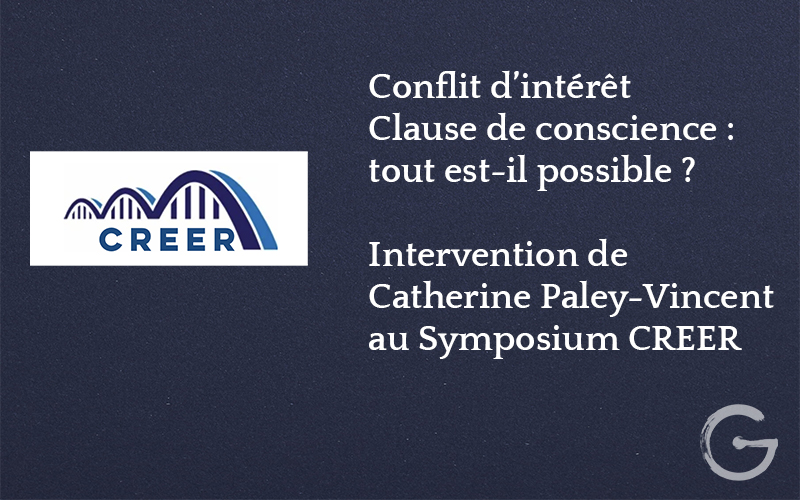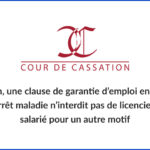Intervention by Catherine Paley-Vincent at the CREER Association Symposium
Conflicts of interest – conscience clause: is everything possible?
Catherine Paley-Vincent took place on September 9, 2023 at CREER association symposium to address these delicate questions which are becoming more and more important in the world of health.
Summary :
The sacrosanct principle of independence which permeates the entire practice of medicine can it leave room for a conflict of interest between the doctor and his patient? Where the doctor's own interests can clash with the strict interest of his patient whom he nevertheless claims to take care of, loyally and calmly, without interference, financial, political, religious or otherwise.
Certainly, yes.
Several laws govern these possible conflicts of interest and dictate the conduct to be followed, setting precise requirements. The “anti-gift law” governing relations between health professionals and the pharmaceutical industry is a perfect example. Also, “declarations of interests” are omnipresent in this desire for transparency between practitioners and patients and again, the management of relationships between doctors and healthcare funders.
More daily, medical ethics often requires restricting the doctor's behavior towards his patient, but also towards his colleagues, his practice structure or even with regard to the fees to be expected from his services to avoid any conflict of interest.
Finally, the nagging assessment of the doctor's own conscience tops it all off. Here again, law and ethics sometimes recognize that the doctor has a real conscience clause in the accomplishment of his missions of care and prevention. Beyond the rules that he sets for himself, a few specific texts then exempt him from the obligation to take care of his patient. Thus article R.4127-47 of the Public Health Code expressly provides that a doctor has the right to refuse care for professional or personal reasons, of course excluding emergencies or considerations of simple humanity. Individual freedom certainly but framed by the obligation to provide assistance and the risk of being accused of discrimination in access to care or its prevention.
If the conscience clause has been omnipresent in the debate on abortion, we will surely find it in the texts soon to be discussed on the end of life.

Catherine Paley-Vincent
Partner
Recognized expert in health law, she intervenes in particular for the constitution and monitoring of structures between hospital and / or liberal health professionals, for the management of possible conflicts and their transactional, judicial or disciplinary consequences. The field of medical imaging is particularly familiar to him.
She advises pharmaceutical companies on medical devices, labeling and clinical trials.
She is regularly consulted on the application of ethics, in particular with regard to the regulation of professional orders of networks, advertising and the Internet used in the medical and veterinary world.





